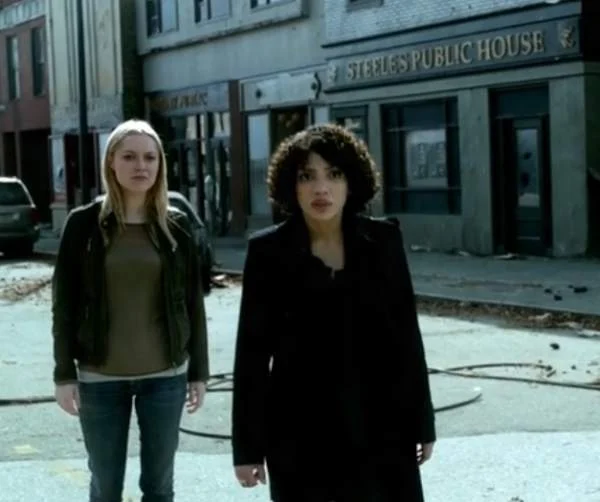The new season of Fringe has begun, but it’s a slow start.
Essentially, we’ve been promised a love-letter. This half-length fifth season is to be the denouement Fringe deserves, the ending that most shows don’t get. The showrunners have described the season as an epic “twelve-hour film” rather than a normal season (though twelve episodes actually only adds up to about nine hours, we get the sentiment).

It’s a grand idea, and in some ways, it’s a grand experiment. They’re making a season of a show, which is really only for the resolute fans. They know this is the end, and that Fox has given them their slot in the schedule for 12 more weeks, despite ratings low enough to warrant cancelation.
Fringe needs no more new viewers, and so has no reason to formulate the show for someone watching it for the first time.
This sensibility shows strongly already in this first episode of the new season. There is very little attempt to make the show work for a new viewer. Even the ‘last time on…’ segment at the begining is formulated to be understood by those who have been following the show for several season, and no more. Peter Bishop’s voice reminds us that last season, the observers took over the world, and that the team had been rescued in the future after ambering themselves. No attempt to explain further is made.
The plot of the episode is similar. There is no case here, nothing to really solve or investigate. It’s suspenseful, interesting, even revelatory, but only to a viewer who already knows the situations and characters. Without that knowledge the episode would be meaningless, even confusing.
All that to tell you: Fringe is one of the best shows on television, but don’t start here. If you’ve never watched Fringe before, this is a terrible place to jump on. Go back first, ideally to the first season, but watch the fourth season before this one, at least. Otherwise your impression of the show will be severely affected.

It’s not just the in-canon references that make this episode different, however. They said that these twelve episodes would be more like one long episode, and they weren’t kidding. The pacing here is way off from what we’re used to in Fringe. The story of the season has only just barely been introduced, and the emotional groundwork here is going to require some time to mature. The episode is slow, but it contains the seeds for an incredible send-off.
I can only imagine that writing a nine-hour episode is a challenge for writers used to the shorter format of television drama. I hope they got it right. An outstanding ending would put Fringe into a permanent place in the annals of the best science-fiction television series, while a poor one could drop it into the legion ranks of otherwise good shows with forgettably slip-shod finales.
As a final point: Try not to role your eyes when you see the brick-strewn waste of New York. I know an opressive dictatorship run by fastidious proto-men from the future would likely be pretty spotless, but how else would they show you that this is a dystopia, if not by leaving broken bricks and abandonded cars all over the place?
The fifth and final season of Fringe is airing on Friday evenings on Fox. You can catch up with the show over on Amazon Instant.






